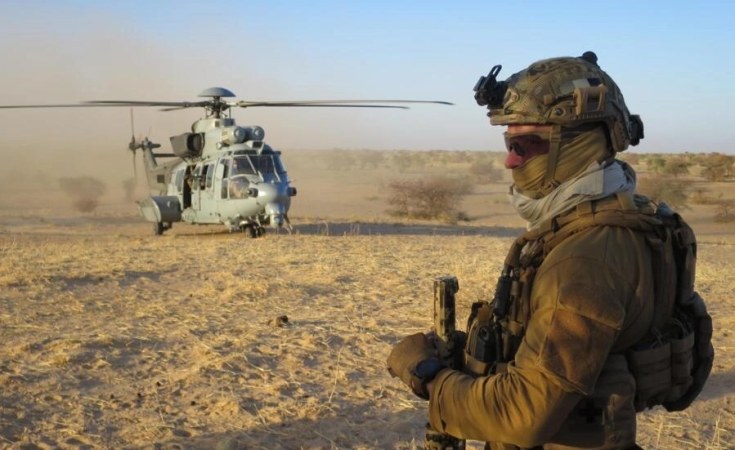Niger has been hit by multiple jihadist attacks since its president was overthrown last month, but observers caution against concluding that a long-running insurgency is shifting into higher gear as post-coup uncertainty mounts.
Since 2015, when jihadists started mounting cross-border strikes from Mali, thousands of people have died and hundreds of thousands have fled their homes.
The rebel officers in Niger who overthrew President Mohamed Bazoum on 26 July pointed to the "degradation of the security situation" under his watch - a belief shared by many Nigeriens.
But the situation is more complex than it may appear.
In the run-up to the coup, the situation had in fact been improving, at least in statistical terms.
In the first half of 2023, attacks on civilians fell by 49 percent compared with the same period in 2022, while the number of deaths was down by 16 percent, according to Armed Conflict Location and Event Data (ACLED) project.
Western observers and partners, especially France, Bazoum's ally, had been quick to highlight the improvement.
They praised a shift in strategy that began after Bazoum took office in April 2021 following historic elections.
While the military regimes in Mali and neighbouring Burkina Faso focus on hefty "anti-terrorist" operations that are often blamed for heavy loss of civilian life, Bazoum fostered localised peace agreements, development projects and negotiations with heads of armed groups.
This was a flexible approach - hailed as highly promising by western partners - but often criticised at home, especially within the army.
Urban versus rural perceptions
A June 2022 opinion poll by Afrobarometer found a big difference between rural and urban dwellers about how they rated Niger's security situation.
People in the cities were far likelier to say that the problems were bad, even though people in the countryside were far likelier to be victims of violence.
According to Mahamane Tahirou Ali Backo, an associate researcher at a Niamey-based social monitor LASDEL, who took part in the survey, "Urban people are more politically aware and have better access to information ... and the higher one's standard of living, the more importance one attaches to issues of security and health."
"The highest-profile attacks are against symbols of state or are large-scale attacks, but background violence is a daily phenomenon, because of gangs and the guns in circulation," he said.
But rating insecurity on figures alone is not always accurate, due to the ruthless but hidden pressures that jihadists exert on local populations under their control.
"If visible violence is falling, that doesn't necessarily mean that people are better off - taxes are still being levied [by the jihadists] and even if the number of attacks is falling - the influence of armed groups is still spreading inside Niger," says Tatiana Smirnova of the Centre FrancoPaix, a French thinktank on conflict resolution.
Plague of the Sahel
Jihadist insurgencies have plagued Africa's Sahel region for more than a decade, breaking out in northern Mali in 2012 before spreading to neighbouring Niger and Burkina Faso in 2015.
The so-called "three borders" area between the three countries is regularly the scene of attacks by rebels affiliated with the Islamic State group and Al-Qaeda.
The unrest across the region has killed thousands of troops, police officers and civilians and forced millions to flee their homes.
Anger at the bloodshed has fuelled military coups in all three countries since 2020, with Niger the latest to fall.
On Tuesday, the African Union said it had suspended Niger until civilian rule was restored and would assess the implications of any armed intervention.
This comes as suspected Islamic insurgents killed at least 12 Nigerien soldiers in the remote south-western region of Tillaberi.
An anti-jihadist operation by national guards was reportedly "the target of an ambush" on Sunday evening, according to TéléSahel.
This comes as the new military ruler General Abdourahamane Tchiani has proposed a three-year transition back to democracy - a call rejected by Ecowas - which sent a delegation to visit Niger on the weekend in a final diplomatic push.


